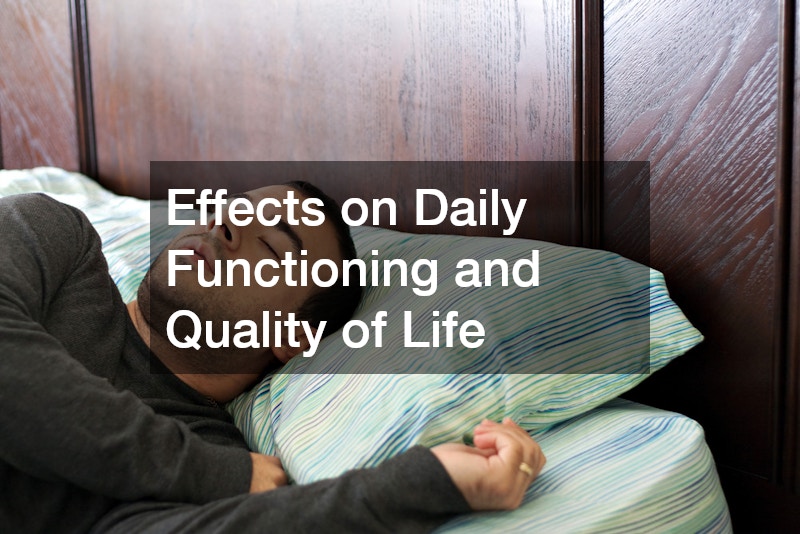Sleep apnea is a common disorder that interrupts your breathing while you sleep, leading to varied health consequences. The condition is often characterized by repeated pauses in breathing, which can last from a few seconds to minutes at a time. This interruption decreases the body’s oxygen supply, leading to multiple awakenings during the night.
Impact on Cardiovascular Health

The impact of sleep apnea extends significantly to cardiovascular health, increasing the risk of high blood pressure, heart disease, and stroke. The repeated drops in oxygen levels during apnea episodes stress the cardiovascular system. This creates an environment where your heart must work harder, leading to increased blood pressure.
Effects on Daily Functioning and Quality of Life

The impact of sleep apnea on daily life is often profound, as the condition can severely affect one’s energy levels. With continuous sleep fragmentation, victims struggle with chronic fatigue and an inability to focus during the day. These symptoms can decrease productivity at work or school and lead to a greater risk of accidents while driving.
The social impacts are also considerable, as individuals may experience mood swings, irritability, and even depression. These emotional challenges can strain personal relationships and reduce overall quality of life. Therefore, seeking medical guidance and treatment is crucial for managing sleep apnea and improving daily functioning and well-being.



